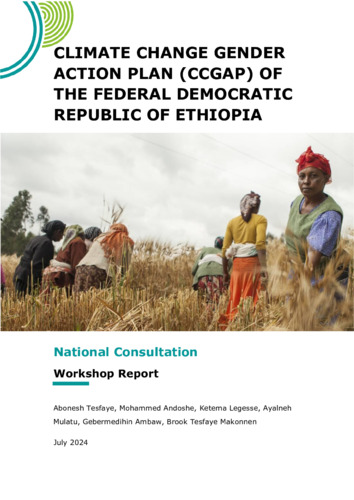Climate Change Gender Action Plan (CCGAP) of the Federal Democratic Republic of Ethiopia
Abstract
Ethiopia faces significant challenges from climate change, with increasing temperatures, erratic rainfall, and more frequent extreme weather events. These changes threaten critical sectors such as agriculture, water resources, health, disaster risk reduction, and infrastructure, exacerbating existing vulnerabilities while posing substantial risks to sustainable development. Climate change impacts are not gender-neutral, where women and girls are disproportionately affected due to existing gender inequalities. These inequalities limit their access to resources, decision-making processes, and adaptive capacities. Women, particularly those in rural areas, endure most climate-related stresses, including food insecurity, water scarcity, and health risks. Such a threat of climate change on gender requires comprehensive and coordinated responses from national governments.
Like many developing countries, Ethiopia is particularly vulnerable to climate change impacts due to its reliance on rain-fed agriculture, underdeveloped infrastructure, and limited adaptive capacity. To address these impacts, the country has taken steps through the development of national policies, strategies, programs and action plans. An essential aspect of these efforts is the integration of gender considerations into these policies and strategies, as climate change can have differentiated impacts on women and men.

